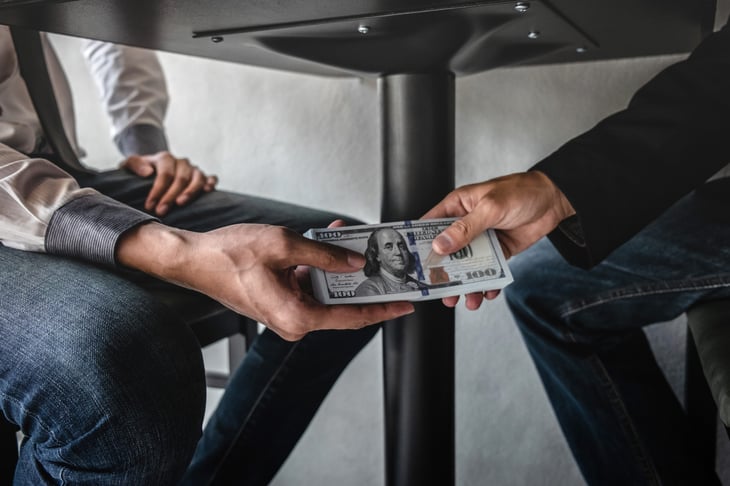[ad_1]

It’s tax season for everybody — together with hardened criminals.
Sure, Uncle Sam expects to gather taxes on every kind of shady dealings. It might sound needlessly thorough and wildly optimistic, however the IRS lists many unlawful actions that depend as revenue in Publication 17, its all-purpose information for particular person taxpayers.
Following are some crimes that, consider it or not, include a tax invoice.
How the IRS catches criminals evading taxes

Earlier than we get into taxed legal exercise, although, you is perhaps questioning why the IRS bothers.
It might take a particular sort of legal — sincere or silly, relying in your standpoint — to report their ill-gotten positive factors and dutifully pay taxes on them. So how does anybody ever get caught?
It’s really fairly easy: The IRS pays good-looking rewards to individuals who snitch on these tax scofflaws:
“Inner Income Code (IRC) Part 7623 supplies for awards to whistleblowers who submit data to the Inner Income Service (IRS). Claims for award that present particular and credible data concerning tax underpayments or violations of inside income legal guidelines and that result in proceeds collected might qualify for an award. […]
Normally, the IRS can pay an award of at the least 15 %, however no more than 30 % of the proceeds collected attributable to the knowledge submitted by the whistleblower.”
Nonetheless, you might not get an award for ratting out your co-worker or neighbor. Solely actions involving proceeds that exceed $2 million or that contain a person making greater than $200,000 a yr qualify. Whistleblowers who have been a part of the tax evasion they’re reporting get a smaller reward too.
Rewards for offering data are additionally topic to taxes, in keeping with the IRS.
1. Bribes/kickbacks

One of many shortest and clearest sentences of IRS Publication 17 states:
“In case you obtain a bribe, embody it in your revenue.”
A pair pages later, it additionally says:
“You need to embody kickbacks, facet commissions, push cash, or comparable funds you obtain in your revenue on Schedule 1 (Type 1040), line 8z, or on Schedule C (Type 1040) if out of your self-employment exercise.”
One other IRS publication supplies extra particular details about what constitutes these actions and warns, “Partaking within the fee of bribes or kickbacks is a severe legal matter.”
2. Drug dealing

The IRS vaguely casts a large web over “unlawful actions” however particularly mentions drug sellers:
“Earnings from unlawful actions, corresponding to cash from dealing unlawful medicine, have to be included in your revenue on Schedule 1 (Type 1040), line 8z, or on Schedule C (Type 1040) if out of your self-employment exercise.”
Line 8z is for “different revenue” and can be the place you may embody authorized revenue corresponding to playing winnings or different prizes, in keeping with Intuit.
3. Stolen property

Excellent news: You’ll be able to simply “borrow” property for some time with out owing taxes on it. In a bit on stolen property, the IRS says:
“In case you steal property, you should report its honest market worth in your revenue within the yr you steal it until you come back it to its rightful proprietor in the identical yr.”
So, criminals: Bear in mind to make returning what you stole a part of your annual year-end tax planning. You’ll be able to at all times steal it once more later, until your New Yr’s decision is to show over a brand new leaf.
If that’s an excessive amount of trouble, be sure to ask your sufferer what the honest market worth of the property was so you may correctly determine your tax.
4. Smuggled items

In case you’ve heard about how mobster Al Capone was finally introduced down for tax evasion, you’re acquainted with this one.
A 1927 Supreme Courtroom case about bootlegging throughout Prohibition (smuggling alcohol illegally), United States v. Sullivan, was the idea for arresting Capone, who trafficked in alcohol, medicine and extra.
5. Spying revenue

Within the Nineties, a CIA agent turned spy for Russia and his spouse have been caught and charged with espionage partially as a result of $2 million in spy revenue that they did not pay taxes on. “The prosecutors didn’t formally accuse the couple of tax evasion,” The New York Instances says, however simply do not forget that’s a no-no.
[ad_2]
Source link










